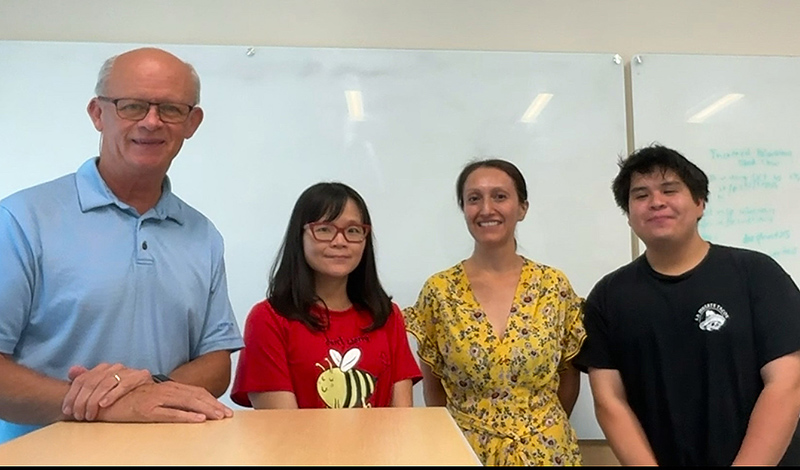Kristen Drum
Contributing Writer

When it comes to summer break, most college students are filling their phones with selfies at the beach or pictures by the pool. Mauricio Mendoza, a rising senior in psychology, leans forward in his chair, eager to show off his summer break photos. He shows off the million-dollar microscope he’s been working with, then scrolls to the impossibly thin slices of mouse brains he cut that morning.
Mendoza isn’t your average college student. Instead of enjoying Charleston’s beaches, he applied for and was accepted into a 10-week Summer Undergraduate Research Program (SURP) in Neuroscience at The Medical University of South Carolina (MUSC). To speak with him, you wouldn’t know this wasn’t a vacation.
“I could be doing a research program in Nebraska,” he laughs. “I’m very happy I’m here in Charleston.”
The idea for applying for a research program came from post-doctoral students he spoke with on a recent tour of a graduate school. They suggested he consider a research program for the summer to learn lab etiquette, conduct research responsibility, and get hands-on experience to show how serious he is about his plans. Dr. Karla Reed, a psychology professor at SMC, was eager to help.
“She’s an incredible professor, and she’s helped me out a ton at SMC,” Mendoza says, his eyes shining with admiration. “She’s very wise, very informative.”
“I first met Mauricio when he approached me during a seminar to inquire about the research methods class I teach and to express an interest in conducting research. So, it was a real full circle moment to have the opportunity to write a letter of recommendation for him to participate in the MUSC Program,” said Reed.
Mendoza spends his time attending classes with various professors, a weekly seminar, and working with his mentor, Dr. Paula Zamudio-Bulcock, on how alcohol affects changes in Purkinje cells of the brain. He puts in full days working closely with graduate students Seth Hester and Abigail Blasczyk.
“They’ve taught me so much. It’s usually 40-to-50-hour work weeks, but I’m not complaining. It’s incredible here,” Mendoza said.
At a MUSC employee engagement meeting over the summer, Mendoza also got an opportunity to see how employees interact with each other. He was also able to ask some questions about the organization. Chief among them were questions about how MUSC is reaching out to lower-income neighborhoods and making these opportunities available to those who live there. As an SMC Senator in the Student Government Association, Mendoza feels compelled to take advantage of the opportunity he earned and help his fellow students pursue similar research programs.
At the end of his program, Mendoza and other program students must each write and present a 10-page research paper based on the studies they conducted with their mentors. It’s another opportunity to network and gives greater insight into the ins and outs of work-life as a researcher. There is another potential perk, though Mendoza admits it’s a bit of a long shot.
“If you work hard enough and put in the effort, you could get your name on a published scientific paper. It’s not a guarantee, but that’s something that can go on a resume and an application. It’s permanent,” he said.
Mendoza grins when asked if his SMC classes will be a breeze after the intensive summer program.
“SMC feels a little more challenging than this. SMC is theory and what-ifs and textbook learning. It’s a different kind of education. I learned about lab etiquette, but here I’m spending the whole day slicing brains and putting them on slides,” he said. “When I do the symposium, it’s public speaking skills and lab skills. It’s a culmination of everything I’ve learned and put into practice here.”
